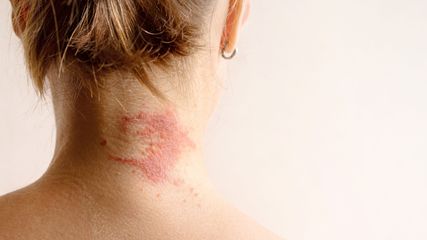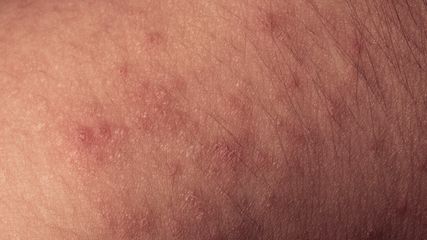
JAK-STAT-Hemmer, Stratum-corneum-Peeling bei GPP, Darmmikrobiomveränderungen beim Melanom
Die Publikationen selektierte:
PD Dr. sc. nat. Emmanuel Contassot
Projektleiter (Forschungsgruppe Navarini)
Abteilung Biomedizin
Universitätsspital Basel
E-Mail: emmanuel.contassot@unibas.ch
Diesmal beschäftigt sich unser Autor neben kurzfristigen kardiovaskulären Problemen unter JAK-STAT-Hemmernmit einem Stratum- corneum-Peeling bei generalisierter pustulöser Psoriasis (GPP) durch Unterdrückung von Corneodesmosin sowie dauerhaften Veränderungen des Darmmikrobioms beimfortgeschrittenen Melanom, behandelt mittels Immun-checkpoint-Blockade.
Short-term cardiovascular complications in dermatology patients receiving JAK-STAT inhibitors
In the last decade, JAK-STAT inhibitors have transformed the treatment of various skin conditions. However, a 2022 study raised concerns about their safety in patients with rheumatoid arthritis, linking their use to higher risks of cardiovascular events and blood clots.
A systematic review published in JAMA Dermatology examined placebo-controlled trials of JAK-STAT inhibitors across different skin conditions to assess their cardiovascular safety and tolerance in dermatology patients. No significant increase in the risk of major cardiovascular events (MACE), venous thromboembolism, or medication intolerance was found between treatment and placebo groups in the short term. The observations did not replicate previous findings and, notably, most MACEs occurred in patients with existing cardiovascular risk factors like hypertension, dyslipidemia, or diabetes. These results provide reassurance to clinicians regarding the safe and well-tolerated use of these medications in patients with low cardiovascular risk profiles over brief periods.
However, due to limited evidence, caution is advised when considering long-term use or administration to high-risk patient groups.
Publication:
Ireland PA et al.: Short-term cardiovascular complications in dermatology patients receiving JAK-STAT inhibitors: A meta-analysis of randomized clinical trials. JAMA Dermatol 2024; https://doi.org/10.1001/jamadermatol.2023.5509 (letzter Zugriff: 26. März 2024)
Mature IL-36γ induces stratum corneum exfoliation in generalized pustular psoriasis by suppressing corneodesmosin
IL-36, a member of the IL-1 family of cytokines, has been shown to play important roles in inflammatory skin diseases and spesolimab, an anti-IL-36 receptor antibody, has been approved to treat generalised pustular psoriasis flares. Excessive IL-36γ signaling in the epidermis leads to increased IL-8 and subsequent attraction of neutrophils.
However, the reason why a large number of neutrophils aggregate in one area of the epidermis and then extensively shed the stratum corneum to form large Kogoj’s spongiform pustules in pustular psoriasis remained unclear. The data presented by Sato E et al. suggest that IL-36γ inhibits the production of corneodesmosin, a protein expressed in the upper layers of the epidermis and contributing to keratinocyte cohesion.
As a consequence, mature IL-36 has the ability to detach the stratum corneum from the epidermis even in the absence of immune cells including neutrophils. The authors have thus identified a new function for IL-36 that may well apply to other pustular skin diseases.
Publication:
Sato E et al.: Mature IL-36γ induces stratum corneum exfoliation in generalized pustular psoriasis by suppressing corneodesmosin. JInvest Dermatol 2023; 144(4): 729-916. doi: https://doi.org/10.1016/j.jid.2023.09.267 (letzter Zugriff: 26. März 2024)
Longitudinal gut microbiome changes in immune checkpoint blockade-treated advanced melanoma
Immune checkpoint blockade (ICB) has transformed cancer treatment, extending survival for many patients with advanced tumors. However, only a subset responds to ICB, and it can trigger immune-related adverse events such as colitis. Despite efforts to assess the gut microbiome before ICB initiation, studies often report conflicting microbial biomarkers of response due to various factors. Longitudinal microbiome studies throughout ICB treatment are urgently needed to better interpret trial results and understand gut microbiome dynamics in this context.
In a study published in Nature Medicine, Björg et al. analysed the gut microbiome of 175 patients with advanced melanoma undergoing ICB treatment over 12 weeks. This study reveals that certain bacterial species exhibit unexpected dynamics during immune ICB treatment, often differing from baseline expectations. Different microbial species showed unique changes from baseline in patients with progression-free survival (PFS) of 12 months or longer compared to those with PFS less than 12 months. Moreover, the trajectory of a particular species can vary depending on the clinical circumstances including the type of ICB.
This study highlights the dynamic characteristics of the gut microbiome and emphasizes the importance of longitudinal profiling at a detailed taxonomic level alongside host factors. Such approaches are crucial for guiding microbiome-targeted interventions aimed at enhancing treatment outcomes.
Publication:
Björk JR et al.: Longitudinal gut microbiome changes in immune checkpoint blockade-treated advanced melanoma. Nat Med 2024; 30: 785-96. https://doi.org/10.1038/s41591-024-02803-3 (letzter Zugriff: 26. März 2024)
Das könnte Sie auch interessieren:
Gezielte Diagnostik, bessere Therapie: gründliche Anamnese als Grundlage
Was rät man Eltern von Neugeborenen, wie sie eine atopische Dermatitis (AD) bei ihrem Baby verhindern können? Wann macht eine komponentenbasierte Allergiediagnostik Sinn? Wie lassen sich ...
Komorbiditäten bei atopischer Dermatitis
Atopische Dermatitis (AD) ist häufig mit atopischen und nicht atopischen Komorbiditäten assoziiert. Das Auftreten von Begleiterkrankungen bzw. das Risiko dafür kann in vielerlei Hinsicht ...
Biologika-Therapie: Pipeline und Klinik
Biologika bieten die Option, in die hinter der atopischen Dermatitis stehenden Immunprozesse gezielt einzugreifen. Dieser Weg wurde zuerst mit dem Anti-IL-4/IL-13-Antikörper Dupilumab ...


